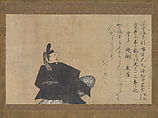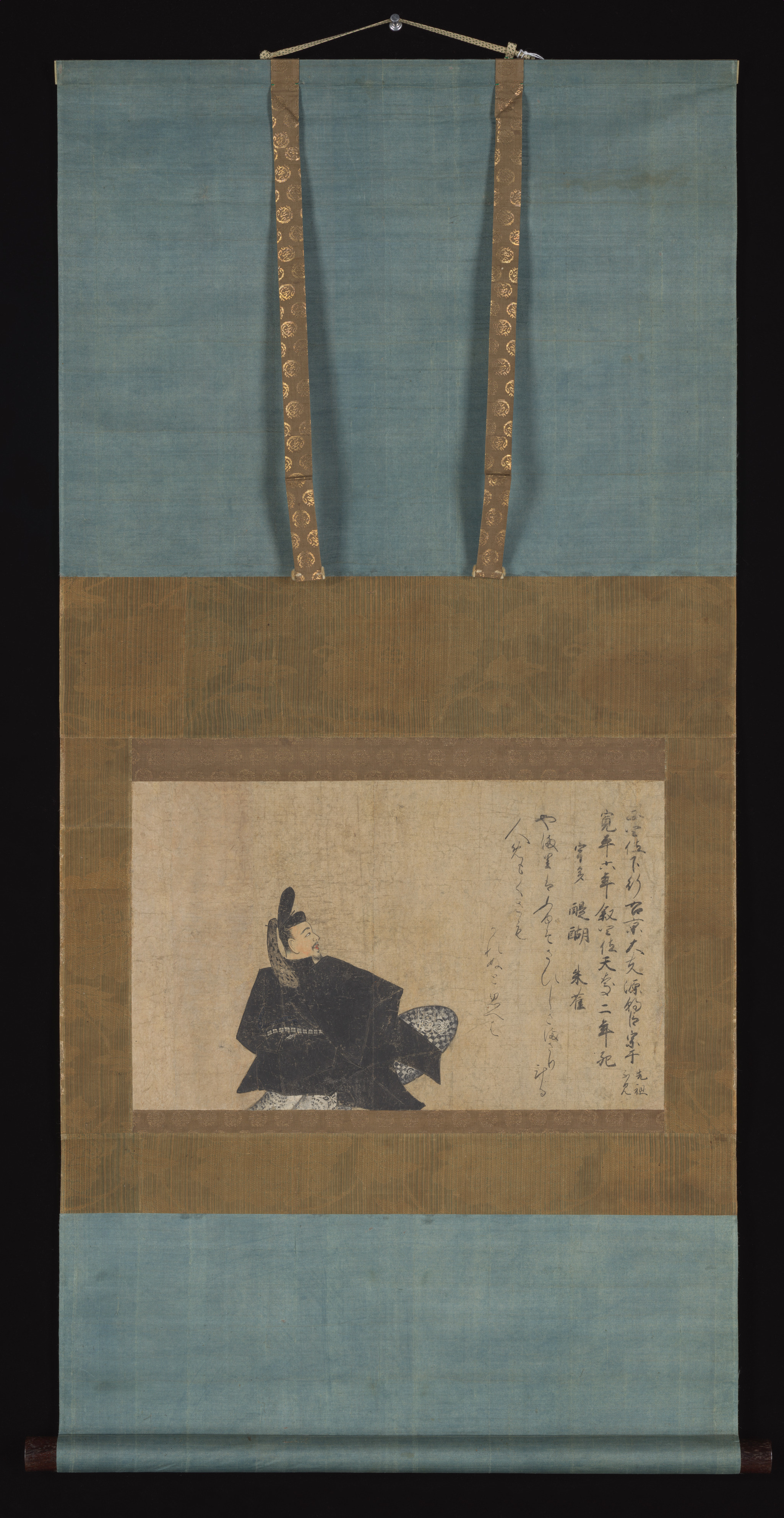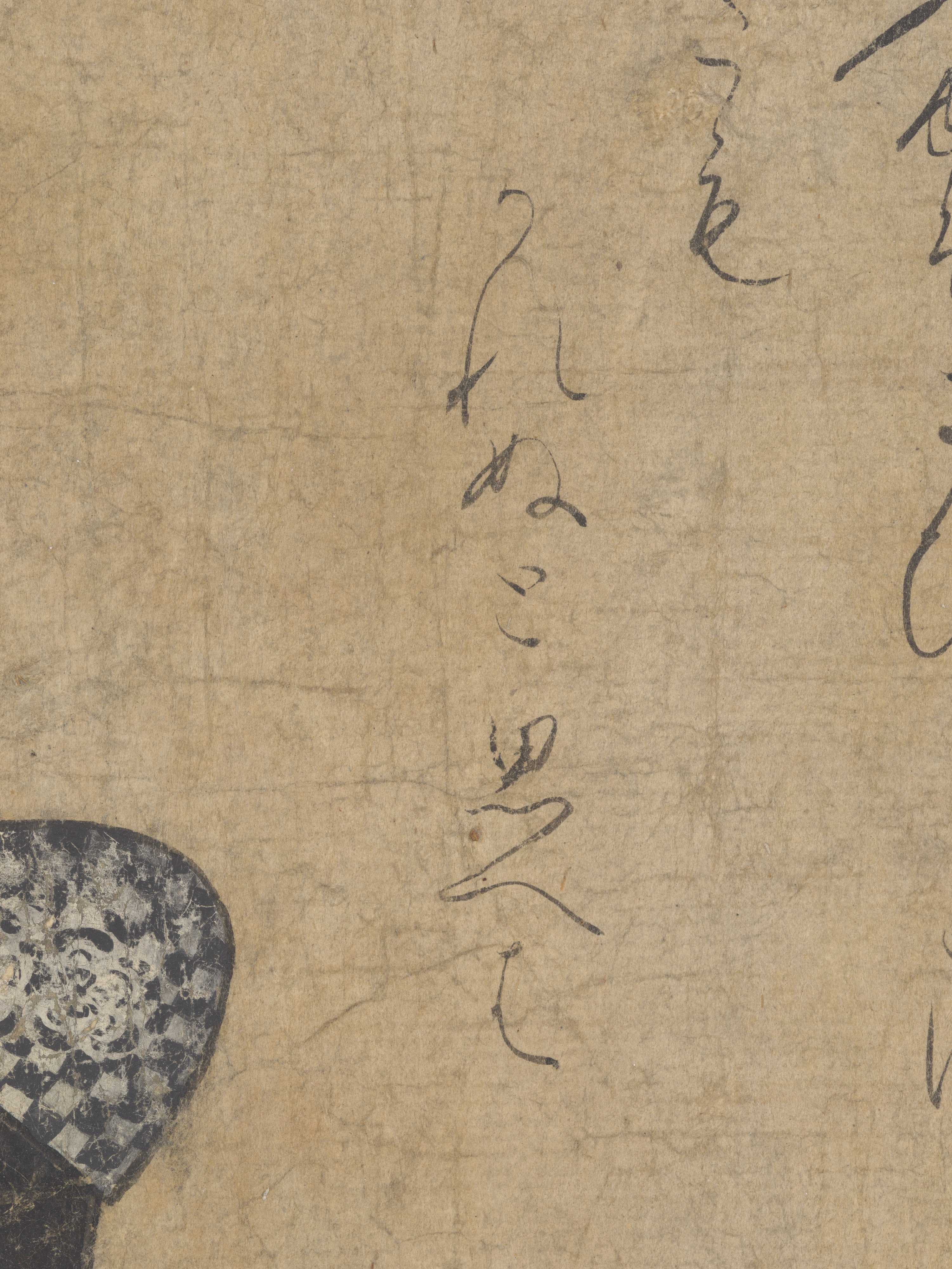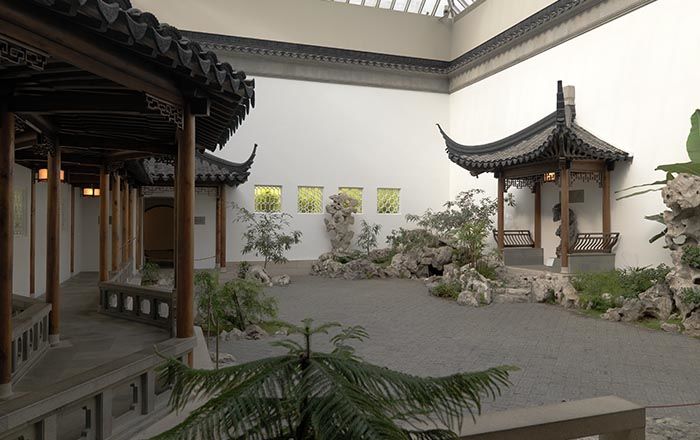Minamoto no Muneyuki, from the “Fujifusa Version” of Thirty-six Poetic Immortals (Fujifusa-bon Sanjūrokkasen emaki)
Unidentified
traditionally attributed to Emperor Godaigo Japanese
Not on view
Minamoto no Muneyuki (died ca. 939), a poet and courtier of the Heian period (794–1185), is counted among the Thirty-Six Poetic Immortals, a list of celebrated poets devised during the eleventh century. Court artists created imaginary portraits of the venerated poets, accompanied by representative verses for each. In painted handscrolls, the poets were often paired off and depicted as though participating in an actual poetry competition. Muneyuki wears the stiff, black, wide-sleeved outer robe (kariginu) of a courtier, with patterned trousers. He also wears the standard black courtier’s cap (kanmuri), with its “tail” (ei) of black gauze hanging down from the back. His waka (thirty-one syllable verse) poem, inscribed in three vertical lines, is written almost entirely in kana syllabic characters, with the poet’s name and biographical note in kanji (Chinese characters) at far right.
The poem reads:
Yamazato wa
fuyu zo sabishisa
masari keru
hitome mo kusa mo
karenu to omoeba.
In this mountain village,
it’s winter when
my loneliness deepens,
and visits from friends
and grasses both dry up.
—trans. by John T. Carpenter
Due to rights restrictions, this image cannot be enlarged, viewed at full screen, or downloaded.
This artwork is meant to be viewed from right to left. Scroll left to view more.




